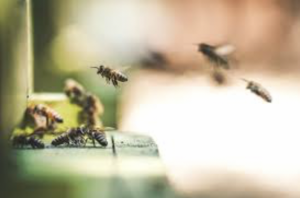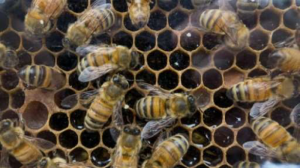We see the use of insecticides all around the world because it is something that is necessary for our own population. Insecticides is something that we depend on for the survival of our crops. However, as much as humanity may need them, not all of them are beneficial for the world. There is one type of insecticide that harms the important bee pollinators – the neonicotinoids. At high doses, the chemicals that make up insecticides can enter the pollen and nectar of flowers and harm bees’ memory, which consequently affect the bees’ ability to harvest nectar.

Neonicotinoid Pesticides Affects Bees’ Social Behaviour
Source: Organic Authority
To further investigate how this happens, researchers have come up with a tracking technique that makes note of how neonicotinoids reduce and affect the activity of bees. Previous research studied the damaging effects of neonicotinoids on the environment as a whole, but most of them did not extend towards how pesticides could specifically harm bee colonies.
Video down Below.
To see how pesticides were affecting bee colonies, James Crall, an animal behaviour biologist at Harvard University, glued small tags to the backs of bees from approximately a dozen colonies. He then used tracking software to capture their movements as they were given sugar syrup coated with a small amount of a common neonicotinoid called an imidacloprid. As a result, the bees’ activity level, including their social interactions, decreased as the bees cared less about their brood.
Source: Wired
Tags on the back of bees to track their behaviour and movement
This was a notable finding as collectivism and working for the brood is integral to the survival of a bee colony. Crall also noted that the bees’ level of lethargy increased during the night and that their abilities to regulate temperature also hindered. Despite the potential benefits that insecticides may bring to our agriculture, they are undoubtedly harmful for some of our species, including the bees.

Source: Phys.org
Bee colonies collapsing as they are decreasing in numbers. Less social interactions.
As such, the question arises as to whether our need for pesticides is greater than our need for our natural pollinators, which is something that cannot be answered so easily.
-Christina Lee

